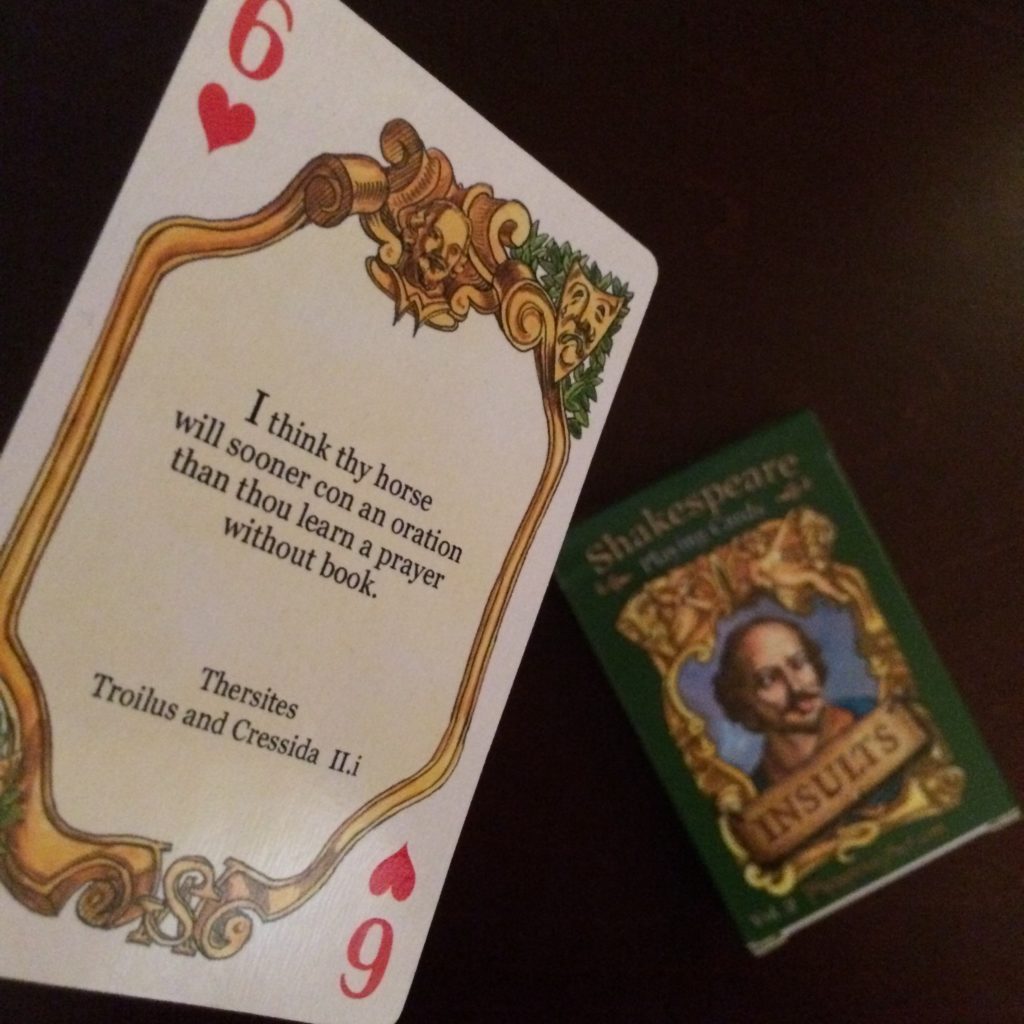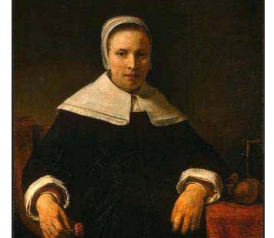
This essay was part of the 2016 Deal Me In Reading Challenge, where I read a short story, essay, or poem every single week. Each item on my reading list was assigned to a playing card, and every Friday I picked a card at random to choose my weekly read.

To My Dear and Loving Husband
By Anne Bradstreet
If ever two were one, then surely we.
If ever man were loved by wife, then thee;
If ever wife was happy in a man,
Compare with me ye women if you can.
I prize thy love more than whole mines of gold,
Or all the riches that the East doth hold.
My love is such that rivers cannot quench,
Nor ought but love from thee give recompense.
Thy love is such I can no way repay;
The heavens reward thee manifold, I pray.
Then while we live, in love let’s so persever,
That when we live no more we may live ever.
Now this is going to sound terrible–especially given that this is one of the most prominent poets in American history–but this poem, to me, sounds…childish and overly dramatic. When it comes down to it, I’m simply not a fan of this poem whatsoever.
The sentiment is absolutely lovely. I do, at least, like this line:
If ever man were loved by wife, then thee;
We were off to a great start. But then this:
I prize thy love more than whole mines of gold,
Or all the riches that the East doth hold.
It’s just…so…I mean…cheeeesy! It sounds so cliche which, ironically, I’m sure she wrote this way first, well before the style could have ever been considered cliche by anyone.
And then, the following lines sound to me as though she is groveling:
My love is such that rivers cannot quench,
Nor ought but love from thee give recompense.
Thy love is such I can no way repay;
The heavens reward thee manifold, I pray.
“Thy love is such I can no way repay?” In “no way repay?” Really? Oh girl, I’m sure your love is just as good as his.
The end of it killed me:
Then while we live, in love let’s so persever,
That when we live no more we may live ever.
Mainly because of the word “persever.” I’m not sure how to pronounce it, except it seems to be an alternate spelling to the word “persevere,” which does not rhyme with the word “ever.”
I read this poem over and over again, wanting to like it, but each time it elicited some degree of wince.
To be fair to Anne Bradstreet, I do feel as though I simply picked the wrong poem of hers for me. When I looked her up online at the Poetry Foundation’s site, she sounds very impressive: “The first section of The Tenth Muse includes four long poems, known as the quaternions, or ‘The Four Elements,’ ‘The Four Humors of Man,’ ‘The Four Ages of Man,’ and ‘The Four Seasons.’…In these quaternions Bradstreet demonstrates a mastery of physiology, anatomy, astronomy, Greek metaphysics, and the concepts of medieval and Renaissance cosmology.”
Impressive. I feel I shall have to give her another try in the future.
Anne Bradstreet
As a young girl, Anne Bradstreet did not have a formal education, but she did have access to an extensive library which was a part of an estate of which her father was steward. According to the Poetry Foundation, “there the young Anne Dudley read Vergil, Plutarch, Livy, Pliny, Suetonius, Homer, Hesiod, Ovid, Seneca, and Thucydides as well as Spenser, Sidney, Milton, Raleigh, Hobbes, Joshua Sylvester’s 1605 translation of Guillaume du Bartas’s Divine Weeks and Workes, and the Geneva version of the Bible.”
She traded in such aristracratic comforts after marrying, and sailed to the New World over the course of a rough 3-month crossing with her husband. They landed in Salem, Massachusetts, had 8 children (!), and she became a published and well-respected American poet.

